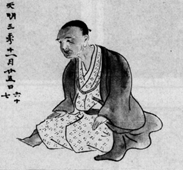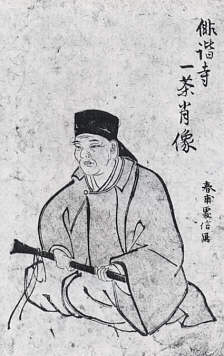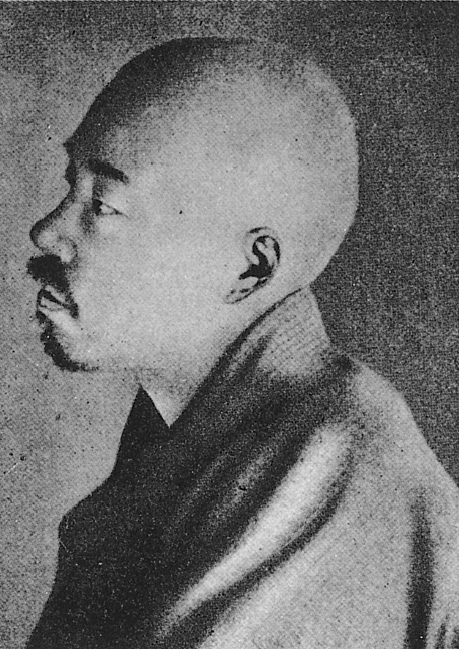When I started the National Poetry Month poet-a-day series this month, I knew that towards the end of the month I was going to cover couple Indian poets at least. Very soon, I had decided that I'd pair Rabindranath Tagore and Faiz Ahmed Faiz on one day and A K Ramanujan and Agha Shahid Ali on the next day. (I debated whether I should post poems by
Muhammad Iqbal instead of Faiz Ahmed Faiz but decided to go ahead with someone who wrote after the partition of India and Pakistan also.)
And so, for April 28 and 29, here they are -- writing posts for both days at the same time on Friday evening (Apr. 29th) as I didn't get time to do this earlier.
First up then is
Rabindranath Tagore, a man whose poems are today sung almost every day by thousands, if not millions, of people ....since he penned both
Jana Gana Mana, the Indian national anthem and
Amar Shonar Bangla, the Bangladeshi national anthem! (He surely is the only person whose works went on to become the national anthems of two nations!) Additionally, Rabindranath Tagore was the first non-European to win the Nobel Prize in Literature, winning it as early as 1913. He is revered in Bengal like no other figure in their rich and varied history and his life's work (poems, short stories, novels, music, theater, and art) continues to influence and inspire musicians, poets, artists, and even cinema (including many of Satyajit Ray's movies) even today. Perhaps Shakespeare alone looms ahead of him across all of history as a poet whose work is so widely celebrated in so many forms of the arts. In terms of far-reaching influence across a large swathe of people then, he perhaps reaches more people than any poet featured this week, including Pablo Neruda.
"My song has put off her adornments.
She has no pride of dress and decoration.
Ornaments would mar our union; they would come
between thee and me; their jingling would drown thy whispers.
My poet's vanity dies in shame before thy sight.
O master poet, I have sat down at thy feet.
Only let me make my life simple and straight,
like a flute of reed for thee to fill with music."
- Rabindranath Tagore (Geetanjali)
Rabindranath Tagore (Born: 7 May 1861, Calcutta, (British) India – 7 August 1941, Calcutta, (British) India)
And now onto three of his poems for today, randomly selected from his vast ouvre, which I have not really read much of (other than some poems from his most famous work,
Geetanjali.)
The song that I came to sing
- Rabindranath Tagore (from Geetanjali)
The song that I came to sing
remains unsung to this day.
I have spent my days in
stringing and unstringing my instrument.
The time has not come true,
the words have not be rightly set;
only there is the agony of wishing in my heart.
The blossom has not opened;
only the wind is sighing by.
I have not seen his face,
nor have I listened to his voice;
only I have heard his gentle footsteps
from the road before my house.
The livelong day has passed
in spreading his seat on the floor;
but the lamp has not been lit
and I cannot ask him into my house.
I live in the hope of meeting him;
but this meeting is not yet.
You did not find me
by Rabindranath Tagore
You did not find me, you did not.
I sat absent minded in a corner,
the lamp had gone out.
You went away seeing no one.
You came to the door
and then forgot,
it would have opened had you knocked.
The boat of my fate ran aground
on this tiny rock.
On a stormy night I sat counting time,
but I failed to hear your chariot's sound.
Shuddering in the thunder's rumbling noise
I pressed my hands tightly round my breast.
In the sky the fiery flame of lightning
wrote a curse, then disappeared.
Keep me fully glad
by Rabindranath Tagore
Keep me fully glad with nothing. Only take my hand in your hand.
In the gloom of the deepening night take up my heart and play with it as you list. Bind me close to you with nothing.
I will spread myself out at your feet and lie still. Under this clouded sky I will meet silence with silence. I will become one with the night clasping the earth in my breast.
Make my life glad with nothing.
The rains sweep the sky from end to end. Jasmines in the wet untamable wind revel in their own perfume. The cloud-hidden stars thrill in secret. Let me fill to the full my heart with nothing but my own depth of joy.
More of
his poems via the Poetry Foundation and to read more about his life and work, pick up the
excellent books about him by Krishna Dutta and Andrew Robinson - I have not read them myself but have heard good things about them. Also read this
excellent essay by Amartya Sen celebrating his life, posted on the Nobel Foundation's website.
The second poet for today is
Faiz Ahmed Faiz, a renowned Pakistani poet, and one of the most famous poets of the Urdu language. Left-leaning and a communist, he was the
first Asian poet to receive the Lenin Peace Prize, awarded by the Soviet Union in 1963.
"When we launched life
on the river of grief,
how vital were our arms, how ruby our blood
With a few strokes, it seemed,
we would cross all pain,
we would soon disembark."
- Faiz Ahmed Faiz (
You tell us what to do)
Faiz Ahmed Faiz (13 February 1911, Sialkot, Punjab (then British India) - 20 November 1984, Lahore, Pakistan.)
Though a lot of the beauty is lost in translating (as it probably is in translating Tagore's poems from Bengali), here then are three poems by Faiz Ahmed Faiz.
by Faiz Ahmed Faiz
Before you came things were just what they were:
the road precisely a road, the horizon fixed,
the limit of what could be seen,
a glass of wine was no more than a glass of wine.
With you the world took on the spectrum
radiating from my heart: your eyes gold
as they open to me, slate the color
that falls each time I lost all hope.
With your advent roses burst into flame:
you were the artist of dried-up leaves, sorceress
who flicked her wrist to change dust into soot.
You lacquered the night black.
As for the sky, the road, the cup of wine:
one was my tear-drenched shirt,
the other an aching nerve,
the third a mirror that never reflected the same thing.
Now you are here again—stay with me.
This time things will fall into place;
the road can be the road,
the sky nothing but sky;
the glass of wine, as it should be, the glass of wine.
Autumn is typically seen in the west as a season of great beauty but seen through the lens of war and strife, Faiz Ahmed Faiz weaves this beautiful poem into a poem of outrage and an a plea against the "violence" of autumn.
by Faiz Ahmed Faiz
This is the way that autumn came to the trees:
it stripped them down to the skin,
left their ebony bodies naked.
It shook out their hearts, the yellow leaves,
scattered them over the ground.
Anyone could trample them out of shape
undisturbed by a single moan of protest.
The birds that herald dreams
were exiled from their song,
each voice torn out of its throat.
They dropped into the dust
even before the hunter strung his bow.
Oh, God of May have mercy.
Bless these withered bodies
with the passion of your resurrection;
make their dead veins flow with blood again.
Give some tree the gift of green again.
Let one bird sing.
by Faiz Ahmed Faiz
Be near me now,
My tormenter, my love, be near me—
At this hour when night comes down,
When, having drunk from the gash of sunset, darkness comes
With the balm of musk in its hands, its diamond lancets,
When it comes with cries of lamentation,
with laughter with songs;
Its blue-gray anklets of pain clinking with every step.
At this hour when hearts, deep in their hiding places,
Have begun to hope once more, when they start their vigil
For hands still enfolded in sleeves;
When wine being poured makes the sound
of inconsolable children
who, though you try with all your heart,
cannot be soothed.
When whatever you want to do cannot be done,
When nothing is of any use;
—At this hour when night comes down,
When night comes, dragging its long face,
dressed in mourning,
Be with me,
My tormenter, my love, be near me.












